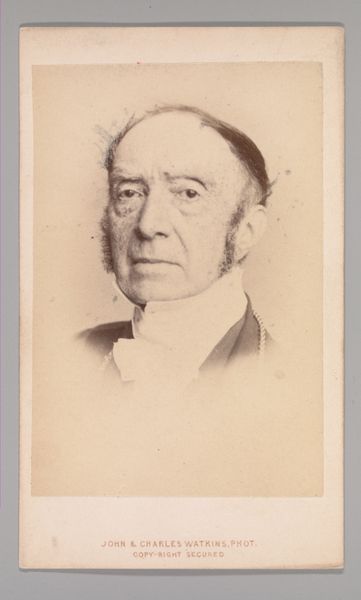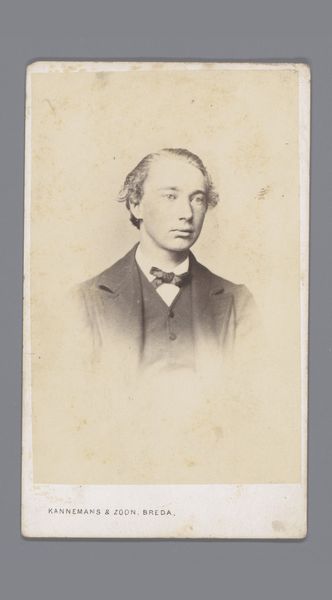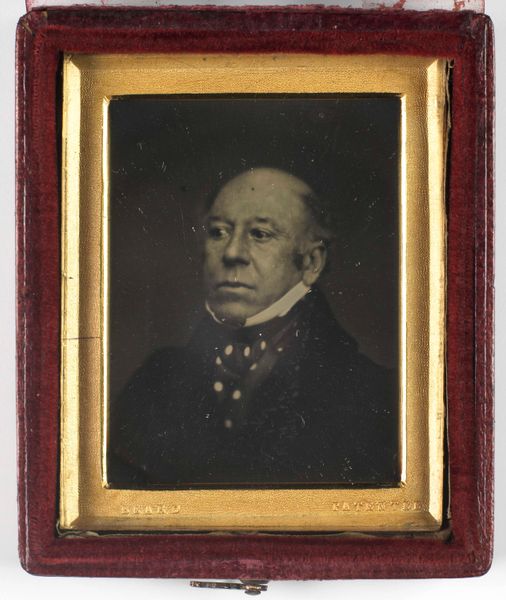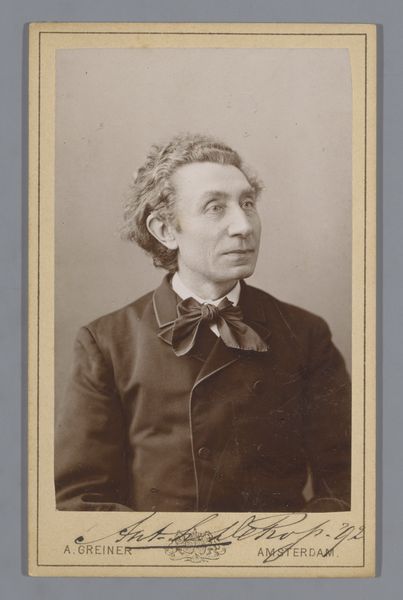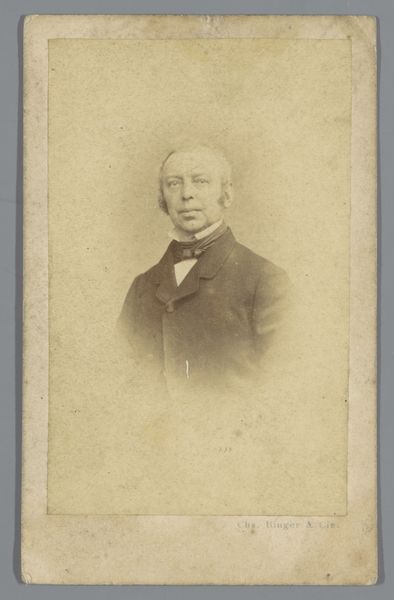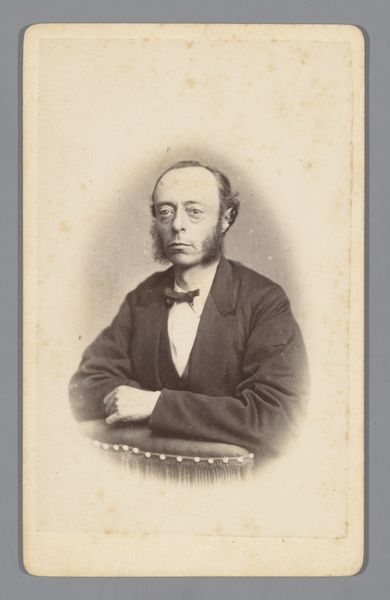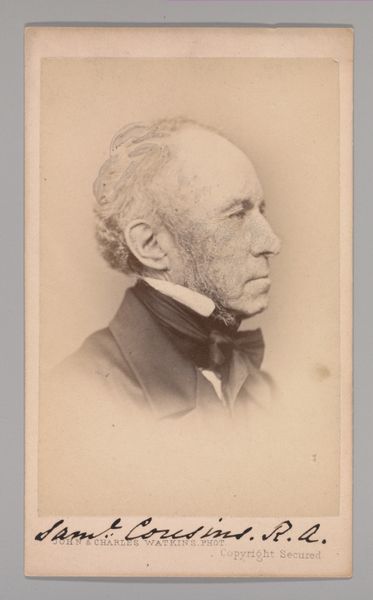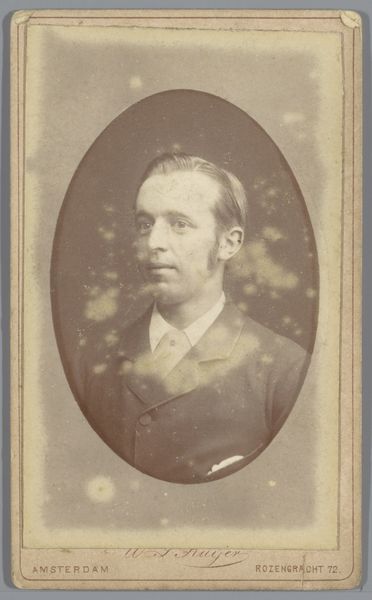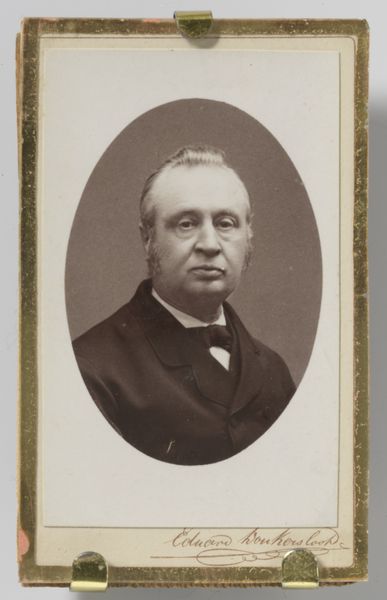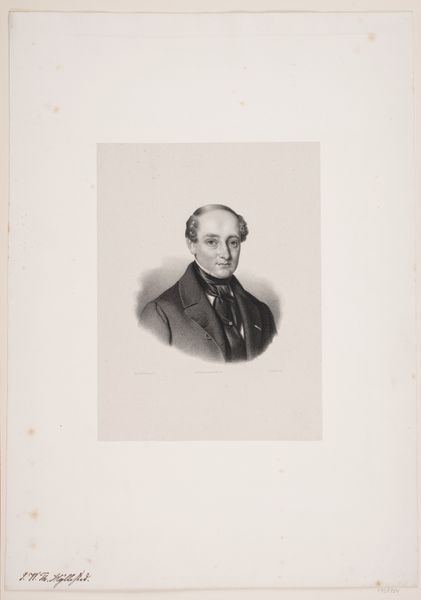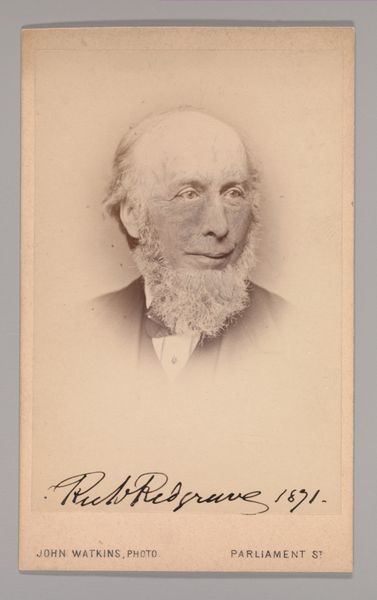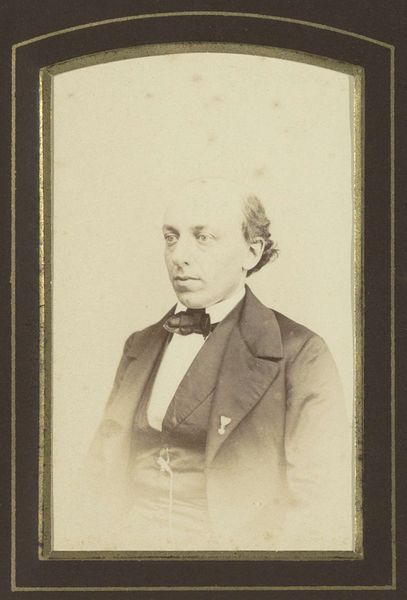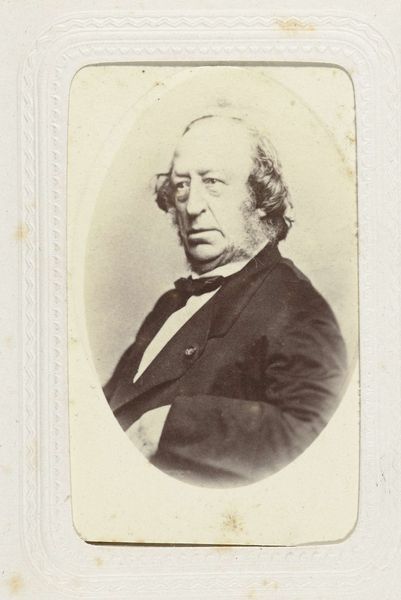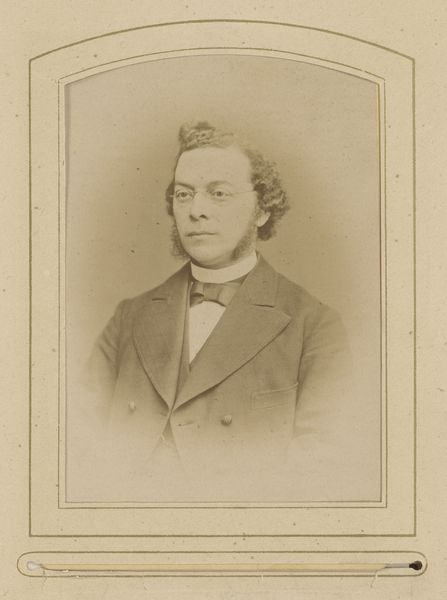
print, photography, gelatin-silver-print
#
portrait
# print
#
photography
#
gelatin-silver-print
#
realism
Dimensions: height 165 mm, width 107 mm
Copyright: Rijks Museum: Open Domain
This is a photograph of an unknown man with glasses by Wilhelm Gerardus Baer. The gelatin silver print is a process patented in 1871, and would remain the dominant photographic process well into the 20th century. The gelatin silver process represented a shift toward mass production in photography. Gelatin emulsion could be manufactured in bulk, and the printing process was quicker, which meant studios could produce photographs more quickly and cheaply than with earlier processes like daguerreotypes or albumen prints. This fueled the explosion of portrait photography during this period. Consider how the reproducible nature of photography democratized representation. While painted portraits remained the domain of the wealthy, photographic portraits made images, and self-representation, accessible to a much wider segment of society. By examining its materiality and production, we can see how this photographic portrait participates in a broader social and economic context, connecting art with labor and consumption.
Comments
No comments
Be the first to comment and join the conversation on the ultimate creative platform.
